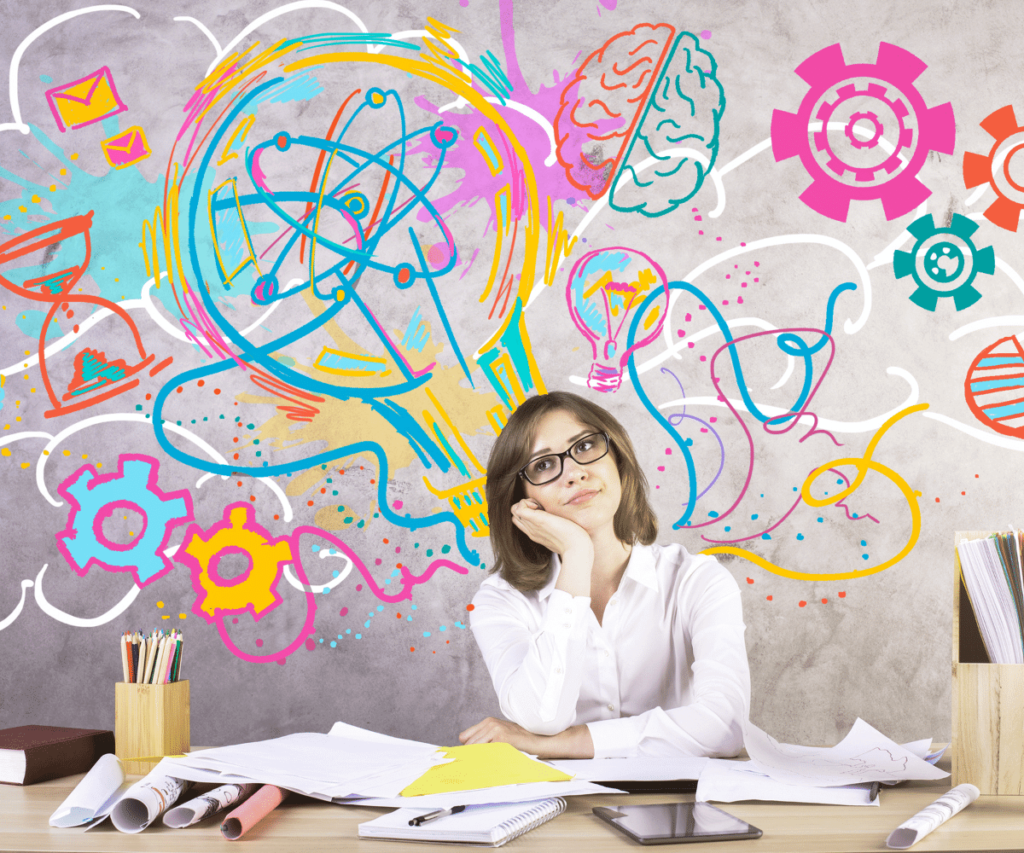In some way or another, all of us gravitate towards creativity. We do like to keep experimenting with our looks on an everyday basis. Right from little things like changing your hairstyle to big transformations like reorganizing your entire closet, we have done it all.
Not only your personal life, but your professional life also gets better when you are creative. If you are highly creative at work, you are likely to be an active part of finding new solutions and being adaptive to new challenges in life.
Most importantly, a recent study shows that creative activities make you feel happy. They give you a sense of direction and purpose in life. Creativity helps you to express yourself in new and innovative ways.
You will see good things happen to you when you get creative. Find enough time and complete that unfinished piece of painting that you abandoned for a long time.
Take some time to get started with writing down your thoughts. Remember that, despite all the good, there are obstacles that can hinder creativity. Through mindfulness, you can remove those obstacles to allow your creative spirit to shine.
OBSTACLES TO CREATIVITY
You might be great at churning out-innovate ideas for your job. However, if you keep focusing on what could go wrong with your ideas, you tend to lose the courage to execute your creative ideas.
By fearing that your ideas might fail, you tend to impose limitations on yourself. However, you should not blame yourself given that our societies have always functioned on this harmful dichotomy of success and failure.
A recent study conducted by the Organisation for Economic Cooperation and Development (OECD) found that 3 out of 4 students in Singapore suffer from fear of failure. As children develop a fear of failure, they tend to avoid challenges and opportunities that arise while learning new things.

Creativity is not just influenced by negativity and fear. It gets blocked due to our cognitive biases as well. Unknown to most of us, there are systematic errors in our thinking patterns that influence the way one judges and takes decisions; these errors are called cognitive biases.
These biases sabotage creative processes by presenting a distorted image of reality. For instance, we are susceptible to a type of cognitive bias called the status quo bias. This bias is all about how we are resistant to change and develop an attachment to things the way they are. The problem with status quo bias is that you tend to stick with familiar ideas rather than think of new ones.
Overall, you now know how important it is to tackle these obstacles that prevent your creative spirit to function to its fullest capacity. Start by taking a simple step towards mindfulness to get your creativity flowing.
MASTERING MINDFULNESS TO UNLEASH CREATIVITY
Research shows that mindfulness enhances creativity. All you need is 10-12 minutes of mindfulness to boost creativity. In a book titled ‘Mindfulness for Creativity,’ Danny Penman argues that mindfulness practices help you to develop three important skills that are central to creative problem-solving.

First, mindfulness activates divergent thinking. As you learn to stay aware of the present moment, you learn to observe all the thoughts in your head without judgment. As much as you learn to observe, you begin to pay attention to the endless possibilities that your imagination holds. Easily, you will be able to think your way out through difficult problems.
The second point is that mindfulness improves your attention span. A recent study confirms that mindfulness training improves attention and lowers fatigue, anger, depression, and emotional burnout.
Most importantly, mindfulness helps you to develop the courage to face challenges and setbacks in life. Research confirms that mindfulness breeds resilience.
As you practice mindfulness, the chain of associations that keep triggering negative emotions like fear and anger break down. This means you would be able to stop dwelling on the fear of failure and focus more on thinking of innovative and creative solutions to solve your problems.
Besides this, Mindfulness helps you to become a self-compassionate individual. As you learn to show compassion towards yourself, you learn to detach yourself from your ideas.
Being aware and self-compassionate will ensure that you exercise your creativity to the fullest without worrying about the negative possibilities.
Alongside, you can also tackle cognitive biases through mindfulness practices. As you practice mindfulness, you become good at noticing your thought patterns.
As the result, you learn to not succumb to your cognitive biases and improve your ability to bring forward new and innovative solutions for problems at the workplace, schools, and colleges.





